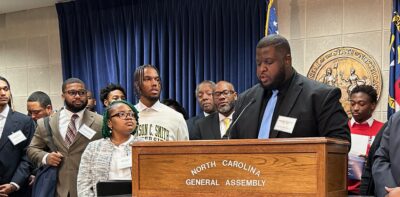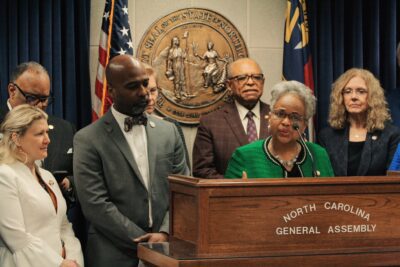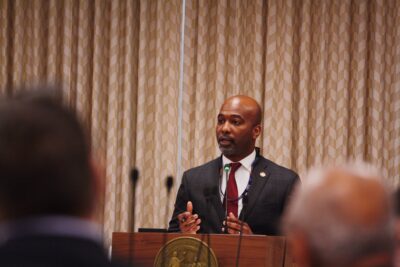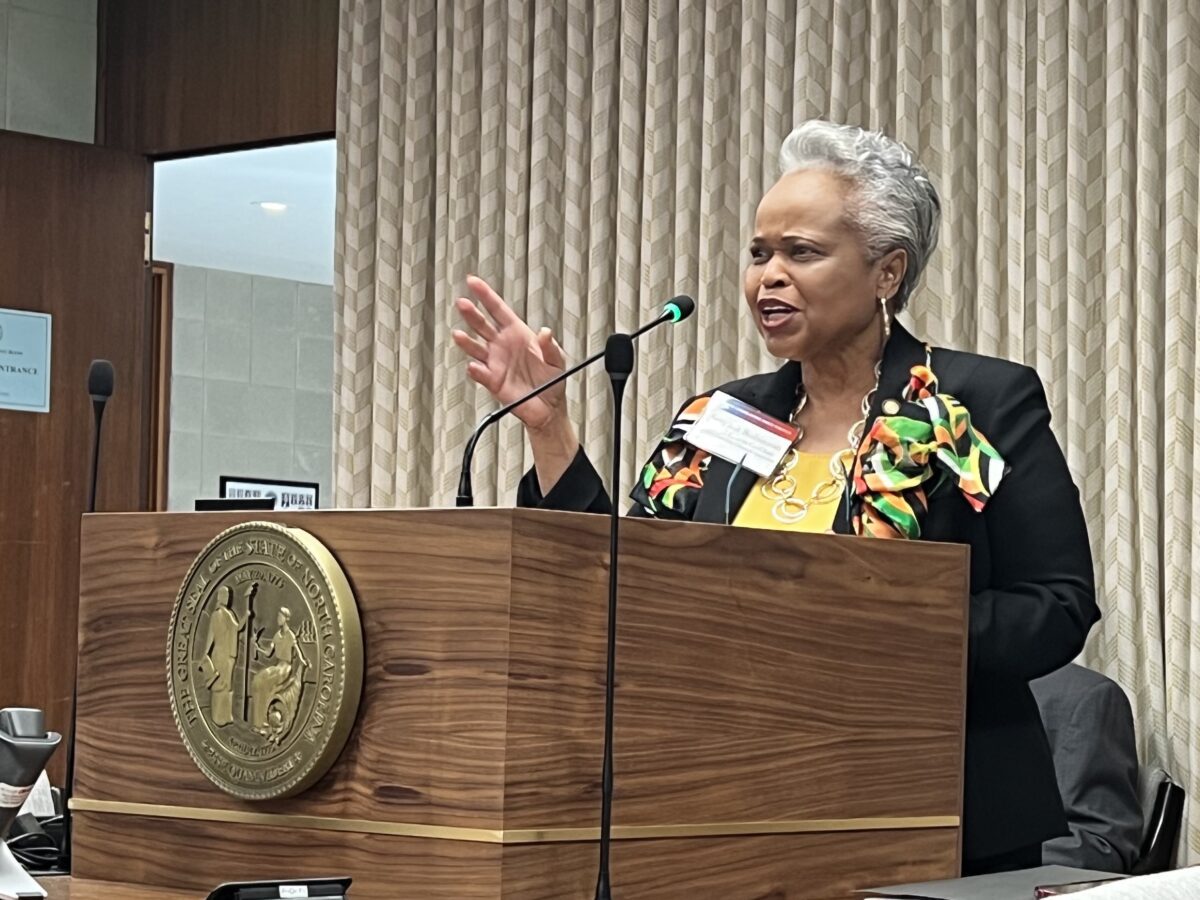

Share this story
|
|
Members of North Carolina’s 10 accredited historically Black colleges and universities (HBCUs) met with state senators and representatives on Tuesday, as the 10 accredited HBCUs in the state, or the NC10, celebrated a legislative day and addressed the legislature’s bipartisan, bicameral HBCU caucus.
More than a dozen legislators attended to hear representatives from the NC10 talk about legislative needs, which focused on funding. As the state with the most four-year HBCUs in the nation, legislators spoke about the importance of leveraging these institutions for a brighter future.
“The mission of our HBCU caucus, of course, is to inform and educate people about all of our HBCUs and then to encourage collaboration,” said Sen. Gladys Robinson, D-Guilford, a co-chair of the HBCU caucus. “And that is what today is about.”
As a collective, the 10 institutions coalesce around legislative asks to modernize infrastructure, support key academic programs, and invest in student success. But each institution has unique legislative priorities. Here’s a summary of what they told legislators.
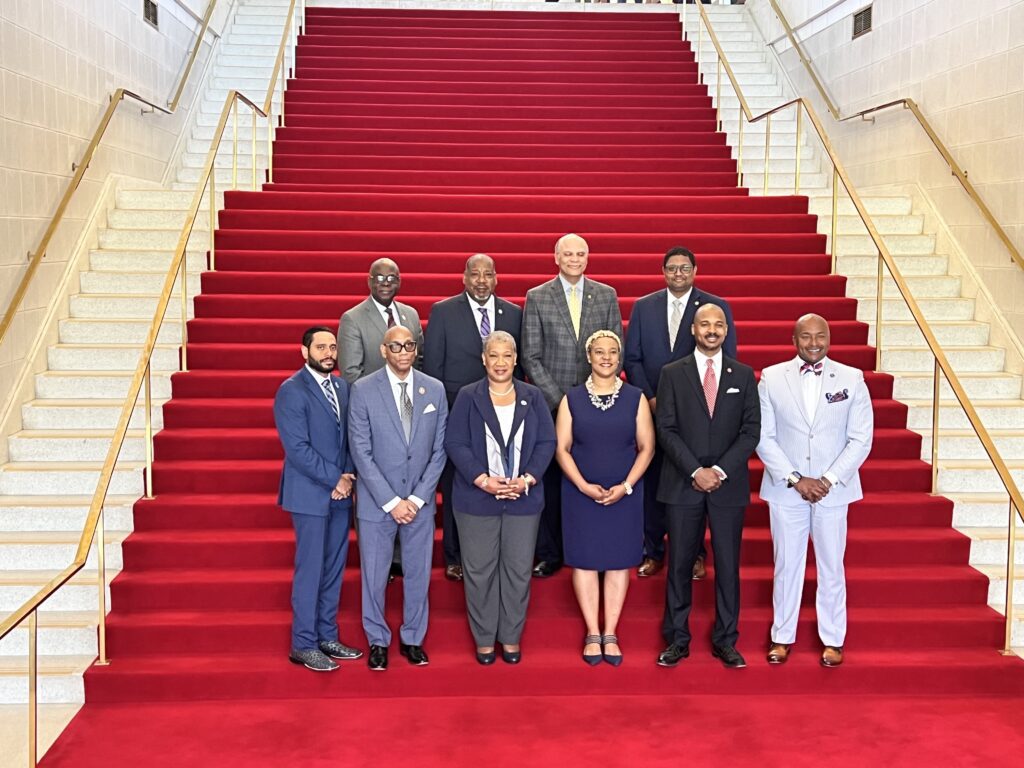

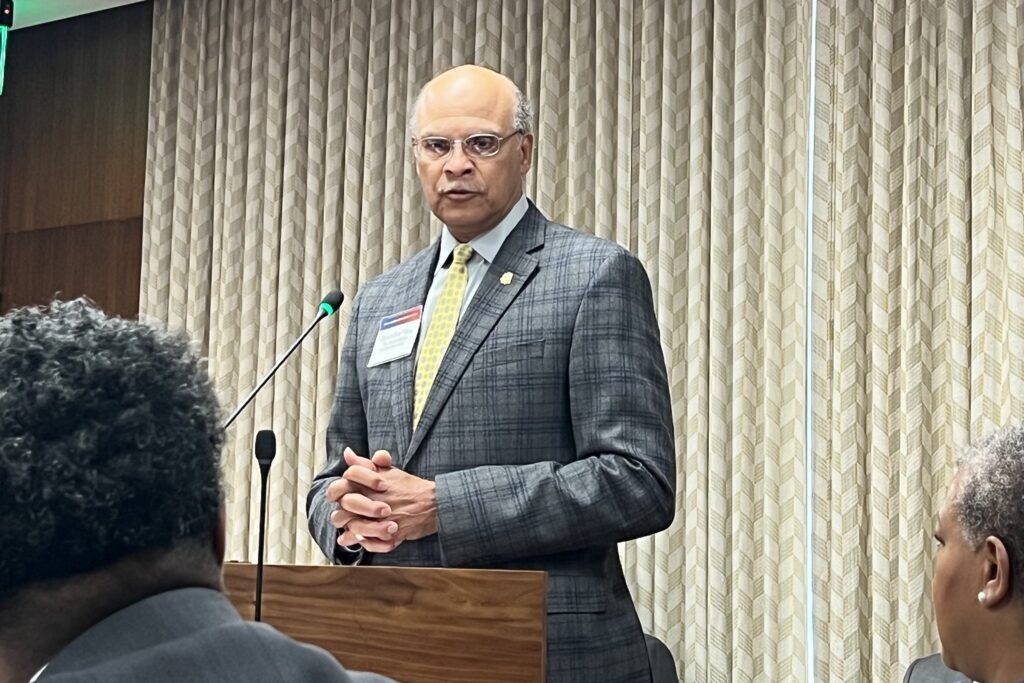

North Carolina A&T State University
Chancellor Harold Martin told legislators that his university’s priority is continued growth — growth in enrollment, research, and economic impact. NC A&T State is targeting funding to continue expanding as a doctoral research university, particularly in science, technology, engineering, and math (STEM), health science, and engineering fields.
“It’s important for us to recognize that all of my colleagues around this room, representing historically black colleges and universities, play a very significant role in educating citizens of North Carolina and producing graduates who are critical to the economy and success of the state of North Carolina,” Martin said.
Livingstone College
President Anthony Davis spoke about his college’s unique standing as a private HBCU.
“Please know that we’re not private because we serve a population who desires to be exclusive,” he said. “We serve a population in many instances that have been excluded.”
Davis said the college’s priority is to secure more funding for students requiring need-based financial aid, as the institution expands its mission to “unapologetically” serve the underserved, underrepresented, and under-resourced.
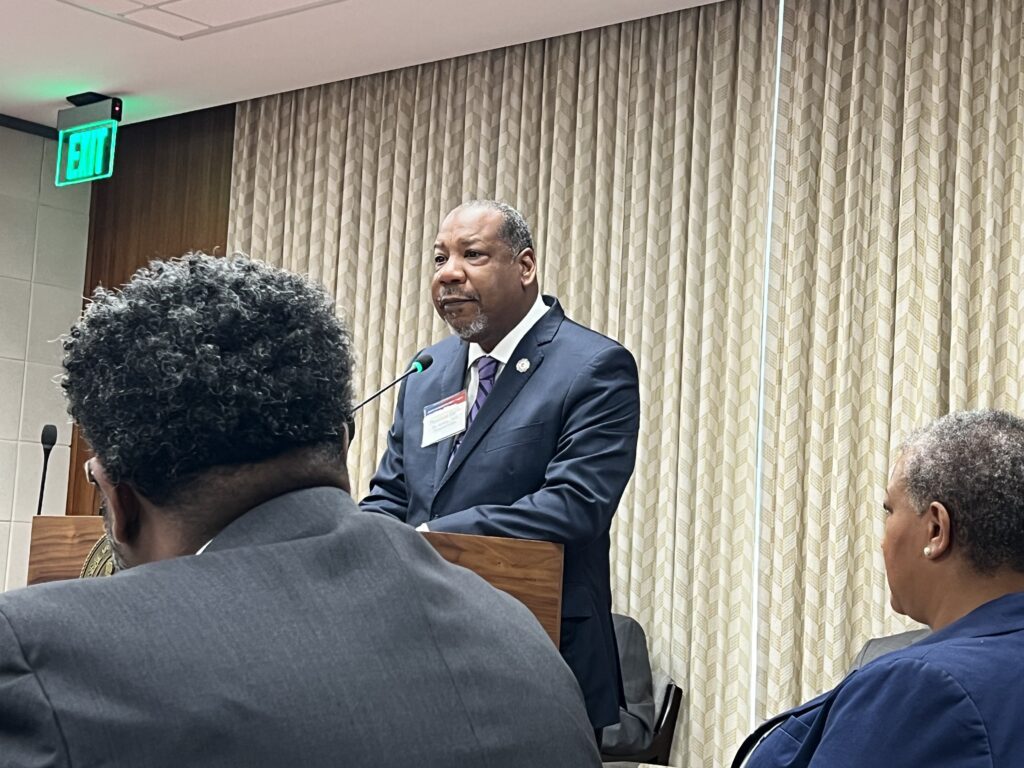

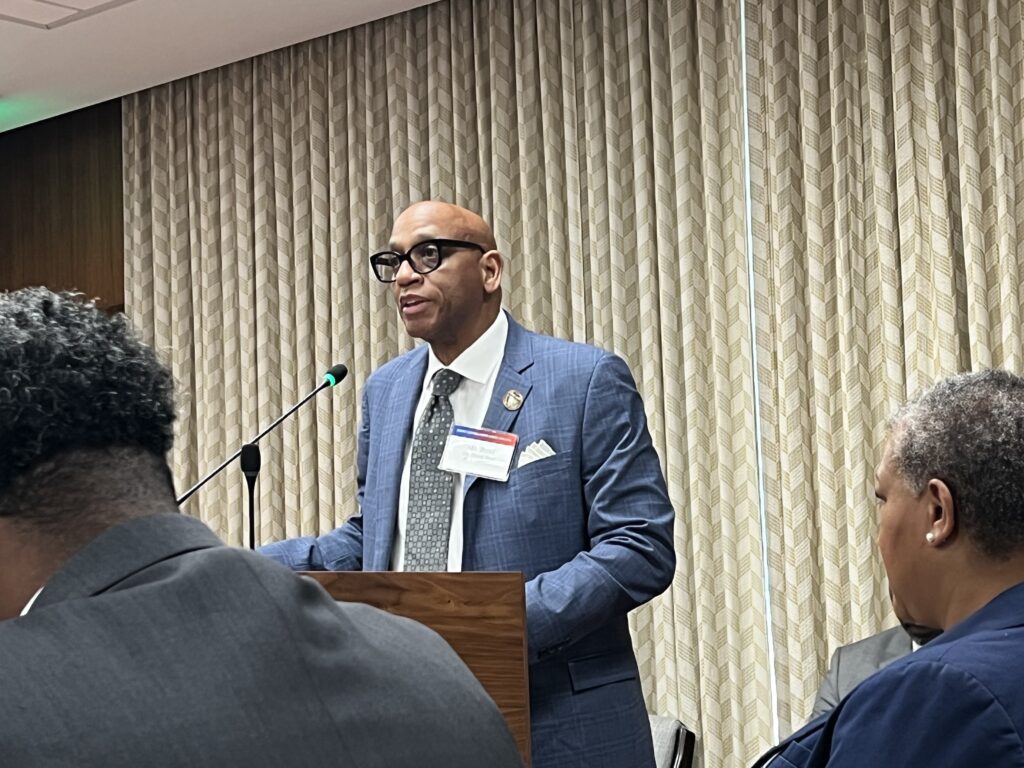

Shaw University
Vice President David Byrd of Shaw University asked for infrastructure support in order to expand programs at the oldest HBCU in the South. The university is starting a cyber operations program in partnership with Wake Technical Community College, for example.
“I ask that you support infrastructure support because as we grow these programs, with limited endowment, we depend on tuition and fees and donations to support our university,” he said.
Elizabeth City State University
Vice Chancellor Gary Brown spoke about Elizabeth City State University’s (ECSU) position as an anchor institution in the Northeast region of the state, which hosts a high concentration of economically disadvantaged residents.
One of the top priorities for ECSU, which was one of just four UNC System institutions to see growth in enrollment last year, is enhancing its library on campus.
“What we know about the impact of libraries on the educational center is that they encourage academic success, not just with the students, but they’re also leveraged by community entities and agencies,” he said.
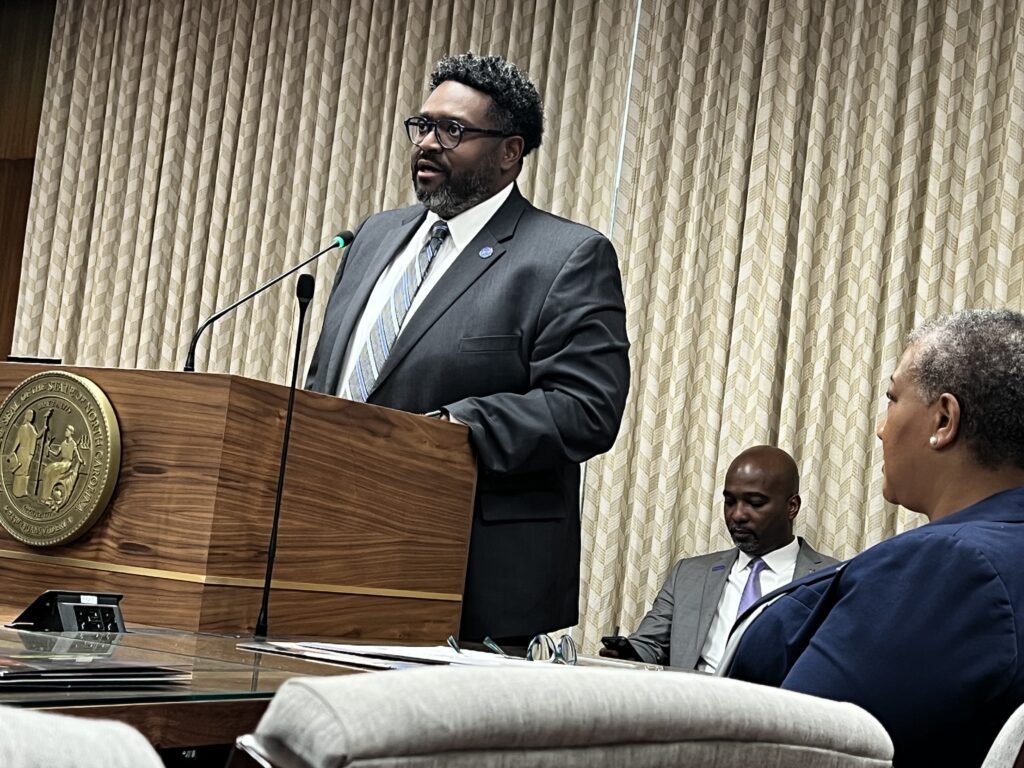

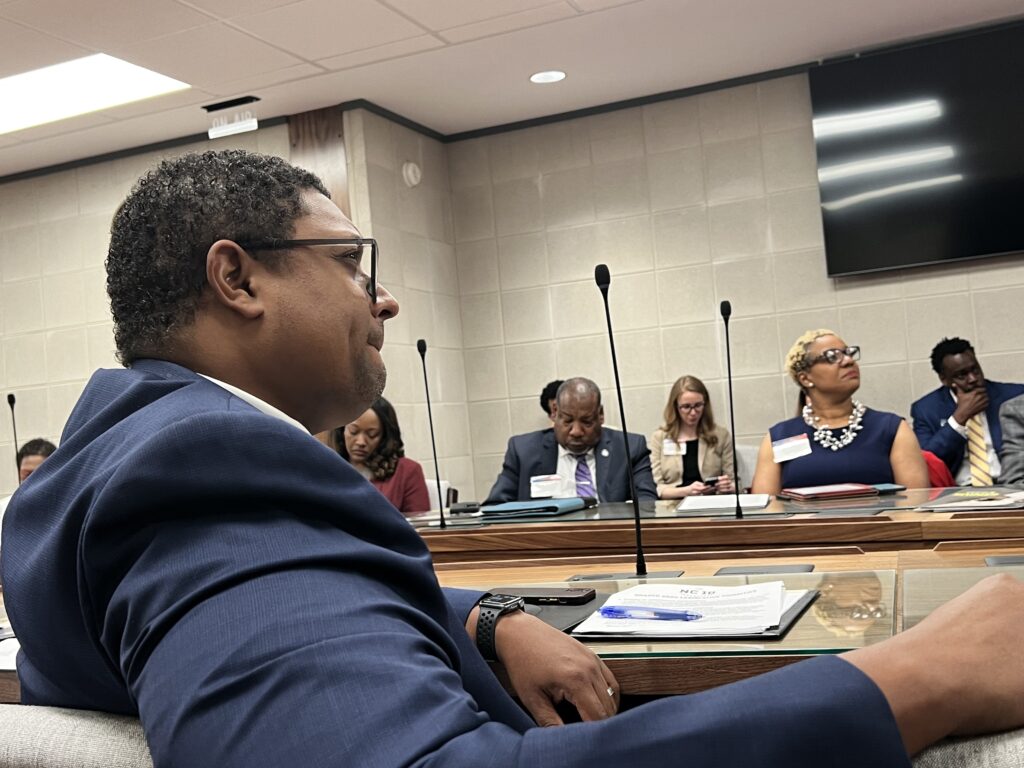

Johnson C. Smith University
The university’s dean for the College of Science, Technology, Engineering and Mathematics, Patrick Martin, said one of his priorities is investing in collaborative centers for students and faculty. Martin said that includes renovations to the university’s dormitories, student union, and maker space.
The university is also looking for funding to invest in a collaboration with Wake Forest University, which is looking to establish a medical campus in Charlotte. Johnson C. Smith seeks funding to support early assurance programs, early entry programs, and to establish joint professorships with Wake Forest.
“Here in America, the health field is only made of 6% African Americans,” Martin said. “However the population in the United States is 12% African American and 22% African American here in North Carolina. Studies have shown that African Americans are more likely to seek preventative medical health care if they can seek that from African American health care providers.”
North Carolina Central University
President Johnson Akinleye told legislators that his top two priorities are capital infrastructure needs and funds for student scholarships and access needs.
Akinleye said more than 70% of his students qualify for federal Pell Grants and 60% have jobs while studying. Major funding to provide scholarships to meet their needs, he said, is critical to both recruiting and retaining students.
Akinleye also said renovating buildings and facilities is important, as his university competes with schools across the nation for top students.
“Our students nowadays are different,” said Akinleye, who noted that some of the buildings on his campus were built nearly 80 years ago. “They’re not like when you and I went to school. They want great facilities, great living areas, student centers that allow them to be engaged, and facilities that provide athletic and cultural engagement for them.”
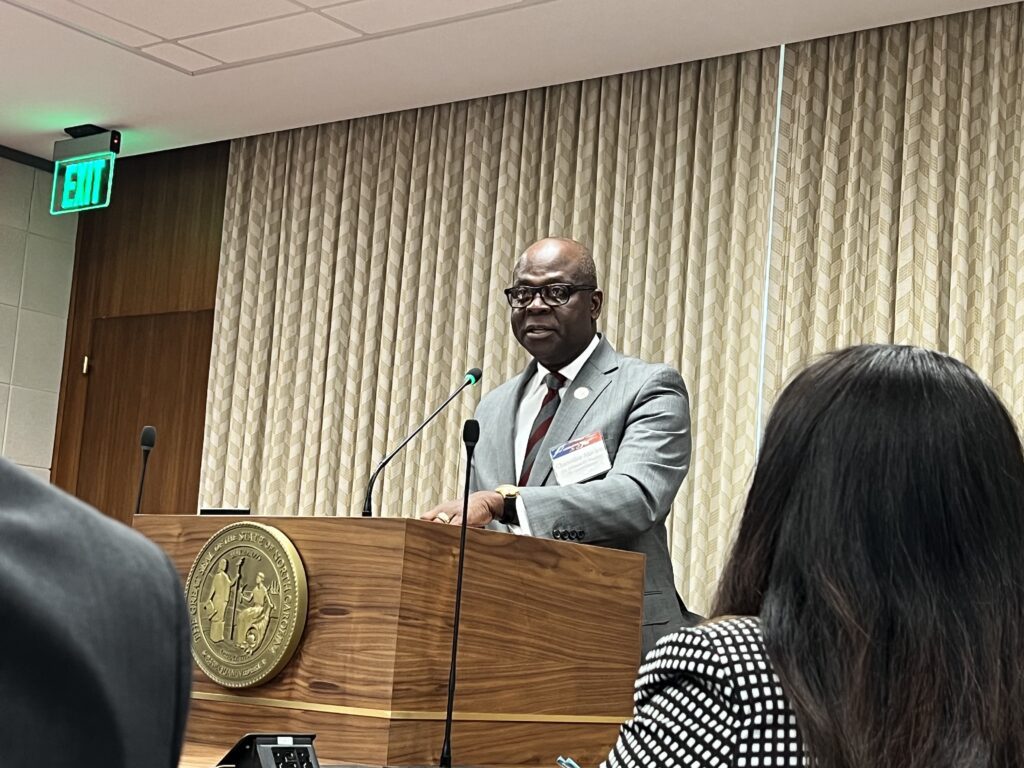

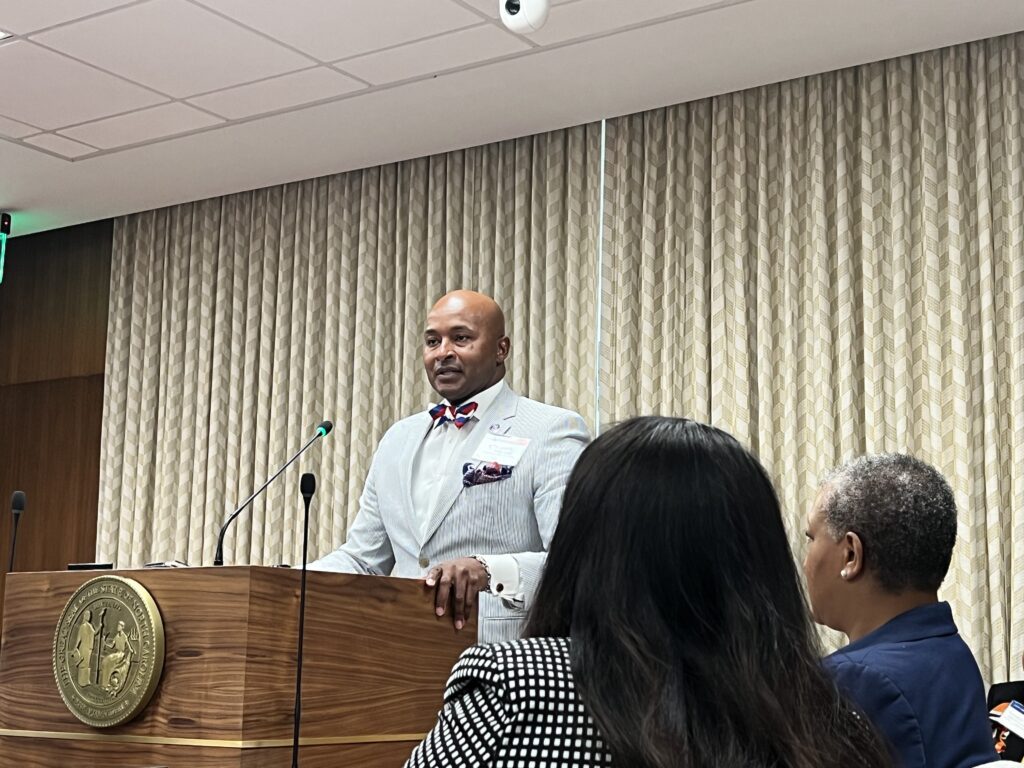

Fayetteville State University
Associate Vice Chancellor Johnny Smith said his university needs funding to support students’ unmet needs and to help them both graduate on time and with reduced debt. One of the initiatives that the university want to continue investing in is a program called Bronco Boost, which offers free summer classes to students.
Given the university’s proximity to Fort Bragg, Fayetteville State is also looking to expand its service to military-affiliated students. The school wants funding to convert an old cafeteria building into a hub for these students.
“Our men and women in the military can come over and receive that specific training that they need,” Smith said. “It will also house various military student groups.”
St. Augustine’s University
Senior Vice President Leslie Rodriguez-McClellon talked about St. Agnes Hospital, situated on the university’s campus. From 1897 to 1961 it served Blacks from Washington, D.C., to Atlanta. One of the university’s priorities is developing a Center for the Study of Healthcare Disparities at St. Agnes.
“This facility will now position us to become a leader in not only health care, but health equity, around this state and around the country,” Rodriguez-McClellon said.
She also talked about initiatives to help Black males and Native Americans with access to higher education.
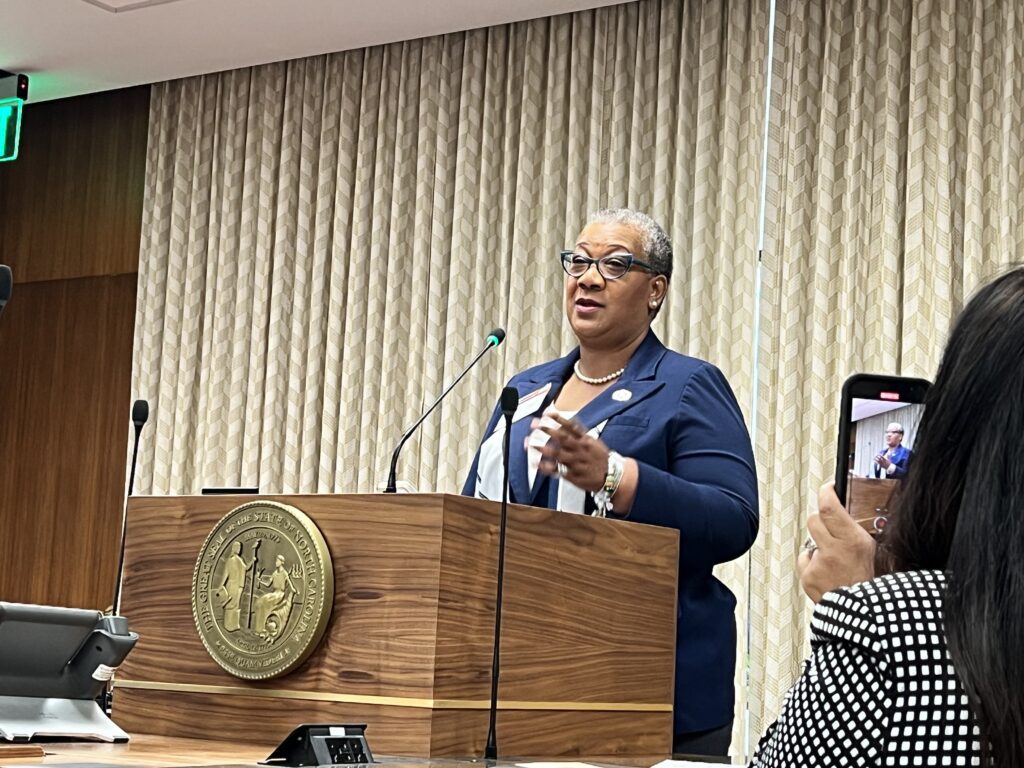

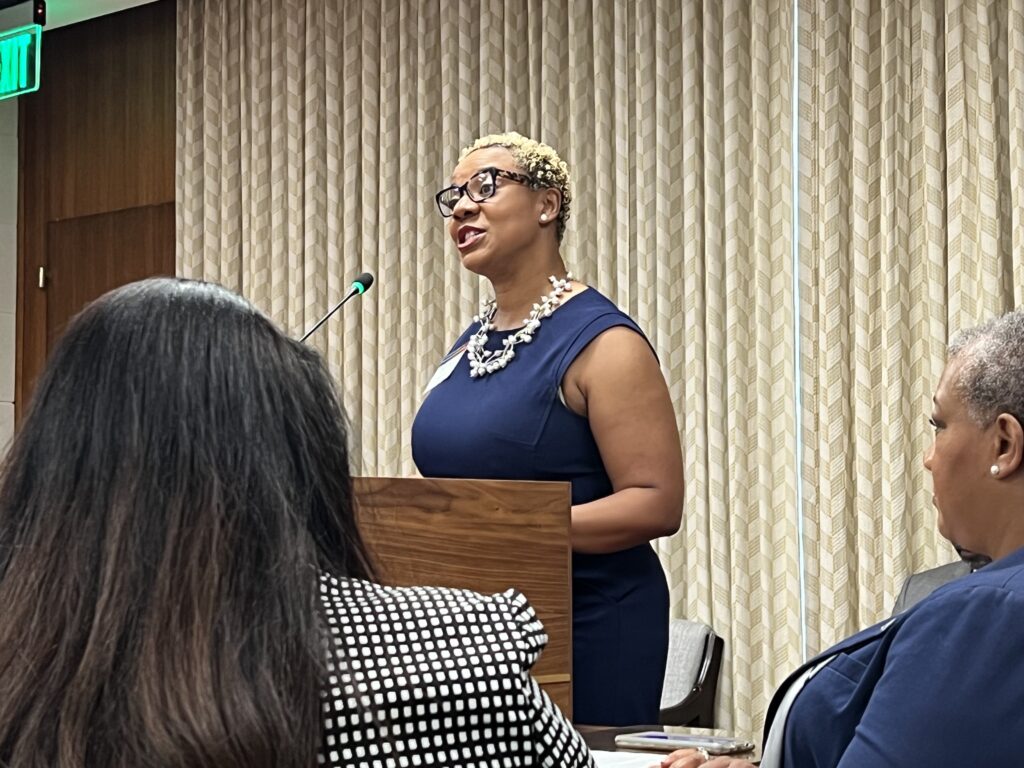

Bennett College
Vice President Laura Colson spoke about Bennett’s unique positioning as the first of only two women-only HBCUs in the country.
The college’s priorities include advancing equitable futures through equity and health by enhancing its biology program. This program focuses on Black maternal health and mental health. The college also seeks further investment in its elementary education programs and educational studies pathways for teacher preparation.
“It is an honor to stand in solidarity with our sister institutions,” Colson said, “but it’s more of a privilege to be the sole institution that can boldly speak to how intersectionality with race and gender affects access to resources, rights and responsibilities that any woman has.”
Winston Salem State University
Richard Davis, director of external relations at Winston Salem State University (WSSU), spoke about the need to invest in facilities and fellowships at the institution.
“We like to say that we don’t want buildings to get in the way of providing an education,” Davis said. “So we need to make sure that the infrastructure is in place that will allow us to continue to provide the educational experience that our students demand and really deserve.”
Davis also said his university doesn’t have access to some scholarships, like NC Promise, that other HBCUs do, so offering fellowships is a way for the institution to keep pace, ensure students can access an education at WSSU, and ensure they graduate with as little debt as possible.
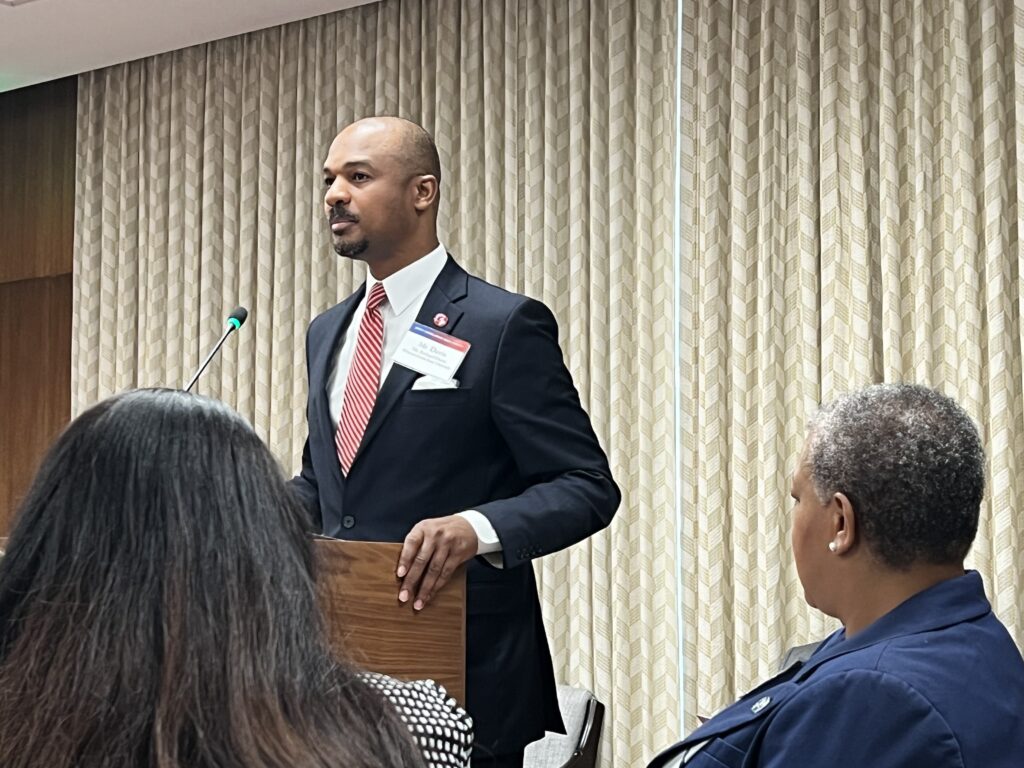

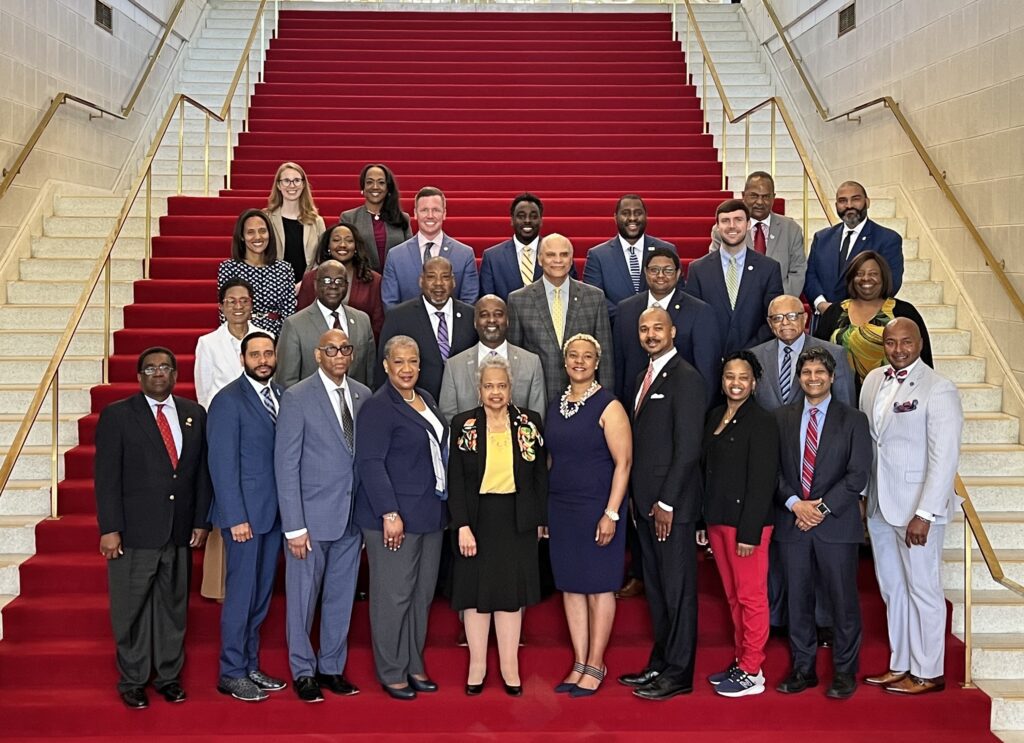

After presentations, NC10 leaders ate lunch with members of the HBCU caucus, and then they met one-on-one with legislators to discuss legislative priorities.
This was the first visit by leaders of all 10 HBCUs since the NC10 began meeting in April 2021.
“This is about informing and engaging,” said Rep. Zack Hawkins, D-Durham, a co-chair of the caucus. “And making sure that we build real relationships with the institutions that change so many lives.”



